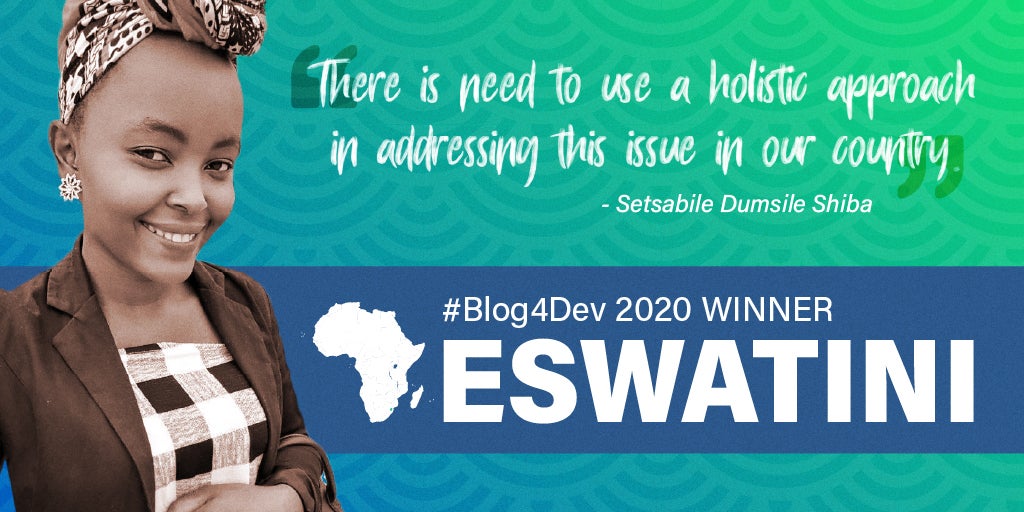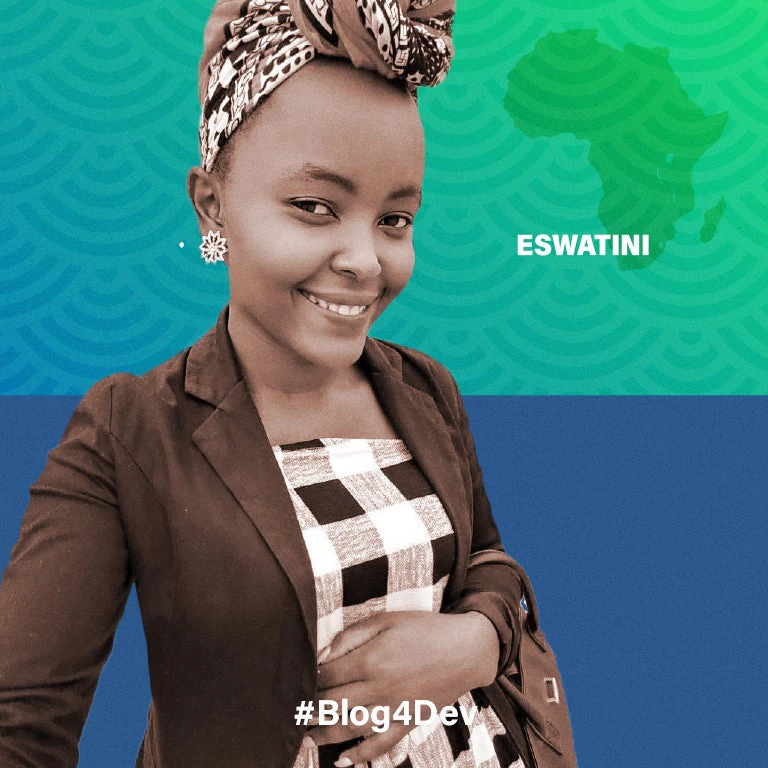 Setsabile Dumsile Shiba, Blog4Dev Eswatini winner
Setsabile Dumsile Shiba, Blog4Dev Eswatini winner
Looking at the subject matter, one could boldly say that child marriage is not a predominant issue in Eswatini. This misconception emanates from the lack of documented evidence and understanding that child marriage is not only the act of marrying a child, but also encompasses the act of maintaining a sexual relationship with the minor and consequently impregnating her.
Without the marriage certificate, this has the same effects on the health of the minor and her baby, her education, her social skills development, and the economic status of her family. Therefore, there is need to use a holistic approach in addressing this issue in our country.
According to a UNICEF study, 1 in 3 girls will experience some form of sexual violence by the age of eighteen. This study was conducted in 2007, and since then there has been an enactment of two legislations in Eswatini —the Children’s Protection and Welfare Act 2012 and Sexual Offenses and Domestic Violence Act 2018— which criminalize sexual activity with anyone below the age of eighteen. However, the enactment of these laws has not deterred perpetrators form violating girls in the country.
Therefore, there is a need for the Police Service to enforce these laws and the Judiciary to prosecute all individuals found guilty, regardless of their status.
Additionally, social and cultural norms and beliefs that have been passed down from generation to generation promote keeping violence against children a secret.
Neighbors believe that it is not their duty to report any unlawful activities that are observed in the community. Moreover, families have a tendency of not reporting child sexual violence and disguise it as family secrets. It is imperative to challenge these harmful norms and practices through community engagement and behavior change interventions. There are different platforms such as social media, collaborating with churches and traditional leaders which can be used to reach communities. These would allow one to reach a wider audience with limited resources, challenging people to place the needs of children first.
Lastly, most teenagers find themselves involved in inter-generational sexual relationships because of poverty. In Eswatini, most of the population lives below the poverty line and unemployment is high among youth. This opens up opportunities for perpetrators to coerce children to engage in sexual relations in order to meet their basic needs. Therefore, economic empowerment of girls and their families is important to end this cycle of violence. Livelihoods projects and market linkages would allow families to improve household income and be self-sustainable, thus lowering the risk of sexual exploitation of children. In addition, most families have arable land which could be used for commercial agricultural production in and improve the economic status of the household.
In conclusion, I personally believe it would take enforcing laws, challenging norms and beliefs, and economic empowerment of vulnerable families to end child marriage in Eswatini.


Join the Conversation